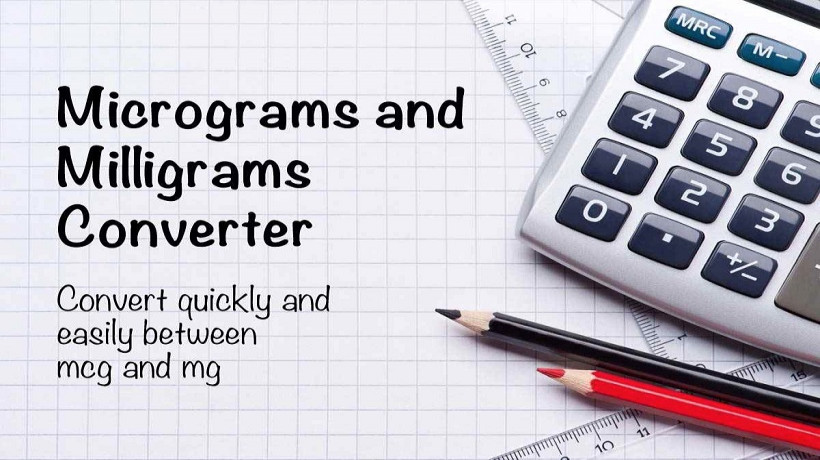A Guide for Mastering Micrograms to Milligrams Conversion
Lets look at one of the best weight conversion tool for students to learn how to convert weight from Micrograms to Milligrams
October 18, 2023
Career Expert & Blogger

Introduction
In the world of measurements, precision is key. Whether you're a scientist, pharmacist, healthcare professional, or simply someone handling substances that require meticulous dosage, understanding the conversion between micrograms (mcg) and milligrams (mg) is a fundamental skill. This article aims to simplify the process of converting micrograms to milligrams, providing you with a practical guide for precise measurement in various fields.
The Microgram to Milligram Conversion
Before we delve into the conversion process, it's essential to understand the relationship between micrograms and milligrams by https://mcgtomg.info/mg-to-mcg. The key conversion factor is that one milligram is equal to 1000 micrograms. This relationship is represented by the following formula:
Milligrams (mg)= 1000 Micrograms (mcg)
Milligrams (mg)=
1000
Micrograms (mcg)
This formula demonstrates that to convert micrograms to milligrams, you simply need to divide the number of micrograms by 1000.
Why Precision Matters
Accurate measurement is paramount in various fields:
- Pharmaceuticals: Pharmacists and healthcare professionals must ensure precise dosages to prevent adverse reactions or therapeutic inefficacy.
- Scientific Research: In laboratories, especially when working with substances in microgram quantities, precision is crucial to maintaining the integrity of experiments and research.
- Medical Practices: Some medications, particularly in specialized medical fields, are administered in microgram quantities. Accurate conversion is vital for patient safety.
- Nutritional Labels: In food and supplement manufacturing, precise measurements are required for accurate nutritional labeling.
Practical Examples
Let's consider a few real-world examples to illustrate the microgram to milligram conversion:
Example 1: Converting 2500 mcg of a medication to milligrams.
Using the formula:
Milligrams (mg)=2500 mcg1000=2.5 mg
Milligrams (mg)=
1000
2500mcg
=2.5mg
Hence, 2500 micrograms of the medication are equivalent to 2.5 milligrams.
Example 2: Converting 5000 mcg of a vitamin supplement to milligrams.
Using the formula:
Milligrams (mg)=5000 mcg1000=5 mg
Milligrams (mg)=
1000
5000mcg
=5mg
Therefore, 5000 micrograms of the vitamin supplement correspond to 5 milligrams.
Conversion in Practice
To effectively apply the microgram to milligram conversion, remember these key points:
- Identify the Measurement: Clearly identify whether you are working with micrograms or milligrams.
- Use the Formula: Apply the formula:
Milligrams (mg) = Micrograms (mcg)1000
Milligrams (mg)=
1000
Micrograms (mcg)
- Simplify When Possible: If dealing with large quantities, simplify the conversion by moving the decimal point three places to the left. For example, 6000 mcg is equivalent to 6 mg.
- Double-Check Calculations: Especially in professional settings, double-check your conversions to avoid errors that could have serious consequences.
Conclusion
Understanding the conversion from micrograms to milligrams is essential for anyone working with precise measurements, whether in healthcare, scientific research, or other fields. It's a skill that ensures safety, accuracy, and quality. By mastering this conversion process, you contribute to the integrity of your work, ensuring that measurements are both precise and reliable. Remember that accuracy and precision are the cornerstones of many professions, and this fundamental skill is a step toward excellence in your field.

